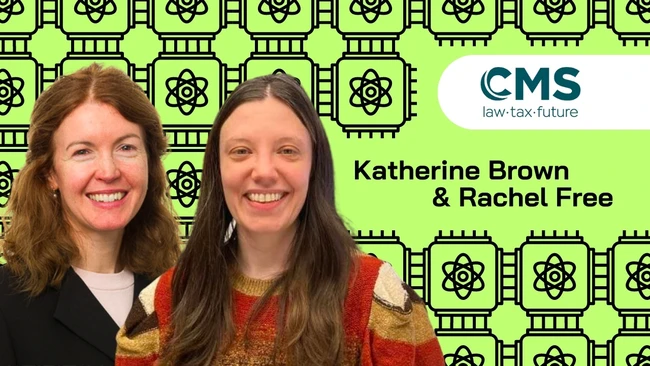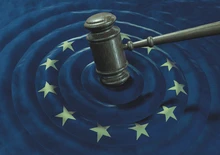
Quantum computing is rapidly maturing, with governments and businesses launching strategic initiatives and collectively investing more than $35.5 billion around the world.
But, still early in its development, experts are still struggling to predict the exact time horizons and applications for the technology, and this has led to distinct beliefs and bets in the market.
While the recent explosion of AI with the rise of OpenAI’s ChatGPT has industry leaders counting the days until quantum computers hit the mainstream, it also highlights the risks and implications of the sudden resurgence of emerging technologies.
Whether it’s regulations, bans, failure to find proper, applications, or general public fear, emerging technologies face a wave of new challenges once they enter the business world, and quantum is set to be no exception.
At Economist Impact’s Commercialising Quantum, EM360’s Ellis Stewart spoke to Dr Rachel Free, Partner at the international law firm CMS, and Dr Katherine Brown, patent attorney at the international law firm CMS about the current state of quantum and how regulations could transform the future of quantum computing.
Ellis: What are your thoughts on the current state of quantum?
Katherine: “It’s a lot more relevant now. I think in the last few years we’ve really seen firms come in both in hardware and software in terms of patents. I think you're getting a mixture of hardware, software and a mixture of everything."
Rachel: “And it’s lovely today at the event to see quantum number generators like the Quantum Dice startup. That's really immediate technology they've got there. That's a concrete product that you can buy today.
“Then you’ve got the longer-term stuff, like quantum computing algorithms technology. That's more into the future but still has such promise for helping us with climate change and with all the problems the world is facing. It's very exciting.”
Ellis: Experts often describe quantum as emerging, and I remember like a few years ago they were saying the same thing about AI and then all of a sudden we had this massive explosion with the launch of ChatGPT last November. Are we going to have a ChatGPT-style explosion with quantum?
Rachel: “The reason why we've had the sudden advance in AI is that when we scaled up the size of the neural network, which allowed performance to suddenly drastically improve.
“For a long time, researchers thought it was that the algorithms weren't up to it, but actually, it was just a problem with scale. Once it got bigger, it really took off.
“And that might be a similar situation in quantum. When you scale up the number of qubits it Might also have the same.”
Katherine: “I agree. I think when getting that quantum gate fidelity up so high that you are actually beginning to get to the age where the error codes are actually working now.
“So often the gate fidelity was too low to do the error correcting code so the error will get higher, but you're now getting to the point where we are reaching the bound for the error correcting code.
“You can really begin implementing error correction and kind of get a bit more scalability and move from a noisy intermediate-scale quantum era to the kind of fuller era. I think that's actually beginning to look a lot more realistic now.
Ellis: Do you think this era is something you can imagine happening in the next five years, in the next 10 years or do you think it's even sooner?
Rachel: “I think things like quantum number generation and quantum secure network communications network technologies are concrete and already with us now.
“But then, using quantum algorithms to help us find new catalysts and find new ways to improve battery technologies and things like this, I think that's longer term.”
Ellis: We've seen some recent government regulations on emerging technologies such as AI. Italy temporarily banned ChatGPT and the UK and EU are thinking of introducing some regulations on AI as well. Do you think regulation could affect quantum in the future?
Rachel: “It's such a topical question, isn't it? We've just seen Sam Altman, the founder of OpenAI, actually asking the US Congress to be regulated just yesterday.
“It's certainly something that we haven't seen before; to actually be inviting regulation. But it can be a good thing, it can be a good thing for business because it sets the guardrails, it makes everyone clear about what can and can't be done. I would say that could be a good way forward in the quantum technology field as well.
Katherine: “I think we will probably move towards standards for different quantum computers so that you can run your algorithms on different computers and get towards that idea of systems working together. That would probably be an era that's coming in as well.
Ellis: If you were to summarise the state of quantum computing in one word, what would it be and why?
Rachel: "Emerging.”
“It's got so much potential. We're on the journey, and that journey is still progressing. It’s just a question of finding the use cases for this technology and ways to scale up the algorithms that are going to have a real impact on today's problems, the world, and the problems we're facing now and in the future.”












